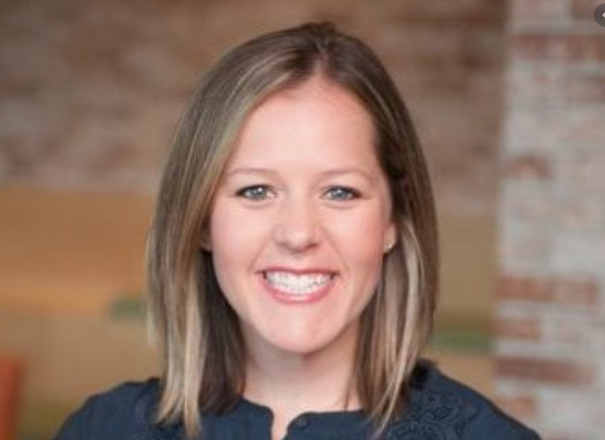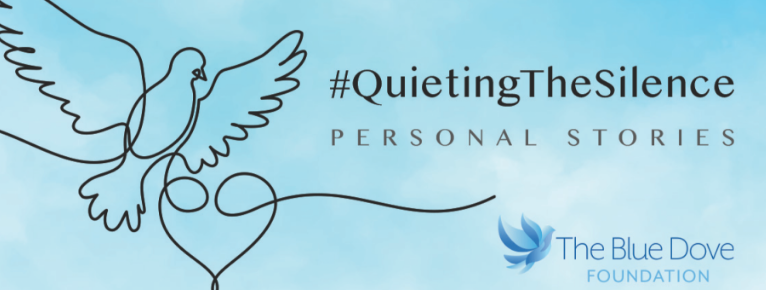‘Deaths of Despair’ Are Growing During COVID-19
The executive director of The Blue Dove Foundation tells a national mental health convention about the Jewish community’s response to rising numbers of addiction deaths.
Spiritually based mental health programs have an important role to play in a nation facing a serious substance abuse crisis, according to Gabrielle Spatt, executive director of The Blue Dove Foundation in Atlanta.
Spatt shared that message at a national meeting of health care professionals earlier this month via Zoom. She was speaking July 13 to the National Alliance on Mental Illness about “Engaging Faith Leaders in Addressing Mental Illness.”
“We believe a compassionate and knowledgeable approach to mental illness can strengthen any community. The way we really see ourselves is as an organization that is a community quarterback, that we are bringing the Jewish community together for these conversations.”
Spatt was joined at the mental health convention by Shannon Royce, director of the Center for Faith and Opportunity Initiatives at the U.S. Department of Health and Human Services. Royce described the desperate need for mental health care services and how that need is, increasingly, not being met.
“In a small congregation of 100 people, which is the average size of congregations around the United States, 20 people in that congregation will be dealing with some kind of mental illness. Only eight of those, in a typical congregation, will be getting any care at all.”
The COVID-19 pandemic has only made matters worse. Because of the pandemic, it is estimated that an additional 75,000 Americans could die by suicide, drugs and alcohol.
A report released in May by the Well Being Trust and American Academy of Family Physicians projected that so-called “deaths of despair” could be even higher if the country fails to act decisively to address the mental health issues caused by the isolation and social and economic uncertainty the health crisis has created.
Dr. Lloyd Sederer, an eminent public health care authority, wrote in the online publication Medscape, “We may be in for a perfect storm of factors driving substance abuse rates higher than we have seen before – the ‘triple trouble’ of a pandemic, unemployment and diminished personal and community supports.”
Sederer, who received the Doctor of the Year Award last year from the National Council for Behavioral Health, described Southern states as among those that are likely to suffer the most.
“In the wake of the coronavirus pandemic, communities already affected by rising deaths of despair — the Midwest, South, and Northeast — will probably be further razed by the economic and psychological consequences of COVID.”
According to a report released by the American Medical Association July 21, there has been a massive increase over the past four years in deaths from illegally manufactured addictive drugs. From 2015 to 2019, deaths from synthetic fentanyl increased from just over 5,700 to more then 36,000, the AMA reported.
Spatt knows firsthand the consequences of mental illness and drug abuse. Her younger sister, who suffered from severe depression and bipolar disorder, died of an opioid overdose containing fentanyl when she was 30.
The story is part of a book called “Quieting The Silence” The Blue Dove Foundation published in April. It tells how 19 people, many of them in their own words, overcame a variety of mental disorders and substance abuse issues.
The book joins an education video presentation the foundation produced that describes the mental health issues that Jewish community leaders in Atlanta have encountered. The video, which premiered at the San Diego Jewish Film Festival last year, features the personal mental health experiences of Rabbi Alvin Sugarman of The Temple and Cantorial Soloist Beth Schafer of Temple Sinai.
“Who we are is rooted in the idea of storytelling,” Spatt said. “It’s our cornerstone; it’s what we’re all about. We want to create a space where people can share their stories and show others they are not alone.”
Raising awareness of the consequences of mental illness and substance abuse is sometimes difficult because many don’t believe these are Jewish community problems, Spatt pointed out. Since there is this denial of how addiction affects Jews, there is sometimes a lack of understanding and support for those confronting drug and alcohol problems, she said.
“I think shame and stigma is something that exists in every community; maybe it’s a little more prevalent in the Jewish community. A lot of times people are struggling internally by themselves. It’s the reason I share my story every single time I get a chance to. Because as we begin to normalize these topics in society, in the Jewish community it makes others feel like they’re not alone.”
Spatt, who has just joined NAMI’s FaithNet Advisory Group, told the national convention that the repair of psychological trauma never ends.
“Judaism has a long tradition of recognizing that healing is not just physical. It has a holistic meaning. It includes physical, mental, emotional, social and spiritual components that are all interconnected. And even when mental illness is under control, healing and our return to wholeness is ongoing. It’s a lifelong journey for us.”
- Gabrielle Spatt
- The Blue Dove Foundation
- National Alliance on Mental Illness
- Engaging Faith Leaders in Addressing Mental Illness
- Shannon Royce
- Center for Faith and Opportunity Initiatives
- U.S. Department of Health and Human Services
- COVID-19
- Well Being Trust
- American Academy of Family Physicians
- Dr. Lloyd Sederer
- Medscape
- National Council for Behavioral Health
- Doctor of the Year Award
- American Medical Association
- Quieting the Silence
- San Diego Jewish Film Festival
- Rabbi Alvin Sugarman
- The Temple
- Cantorial Soloist Beth Schafer
- Temple Sinai
- FaithNet Advisory Group
- Health and Wellness
- Community






comments